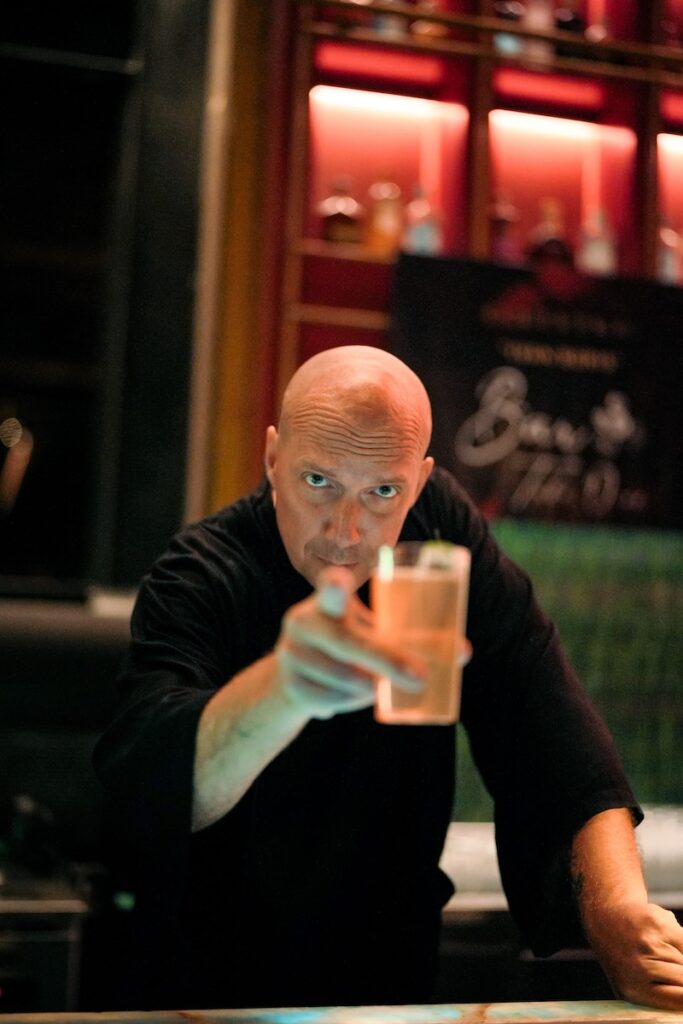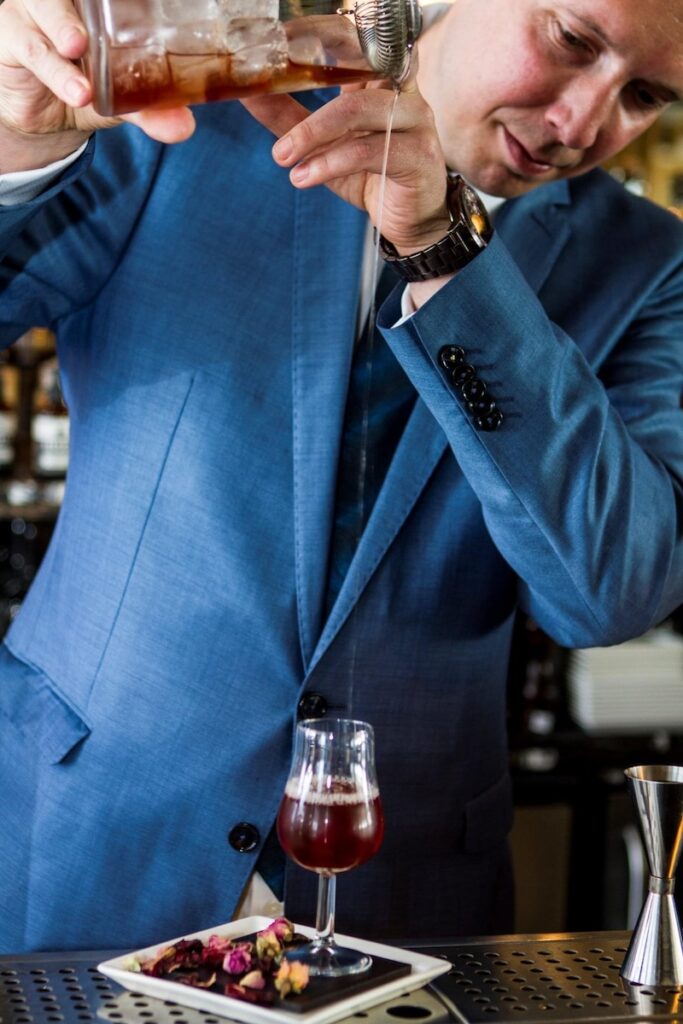We sat down with Boris Ivan, International Brand Ambassador and APAC Brand Manager for González Byass. He spent more than eighteen years on the London bar scene. In 2016, he began representing González Byass brands in more than 75 countries. After more than a thousand flights—most of them to Asia—he moved there permanently to support local markets, the bar scene, and young bartenders. His work includes trainings, personal consultancy, and other activities necessary to support brands and the needs of partners.
You have been traveling across Southeast Asia for many years. What fascinates you about it?
Asia has always fascinated me—in gastronomy and in the bar scene it is one of the fastest growing regions of the world. I started coming here in 2008 when I was part of the Slovak Olympic House, and since 2016 on a regular basis. Because of this, I have traveled through most Asian countries, which was always my dream, since most of my inspirations as a bartender or trainer came from here. Over the years I have had the chance to work with hundreds of bars across Asia and many of them belong among the best in the world.

In the end, you decided to settle in Indonesia. What led you to that?
I ended up in Indonesia by coincidence, since originally I was supposed to move to Singapore. But because of the incredible increase in living costs and the small size of the market, I decided for Indonesia, which I knew very well, and in the end it was a much better step.
Which Asian cities do you really like to travel to, and why?
I believe that when someone likes to travel and discover new things, it is hard to choose the best places, because each one has its charm. But I would probably start with Japan, specifically Tokyo and Kyoto, which were a big bartending inspiration for me. The culture, attention to detail in every step, and precision are just a small example of why Japan is so interesting. I love China, especially the regions of Guangdong and Sichuan. The reason is the people, the incredible spectrum of flavors when it comes to food, spices, fruits, and the strong tea culture, which is close to my heart. Hong Kong is a huge, vibrant city with the influence of both China and Western culture, which can satisfy you in every direction. Gastronomy is built on multiculturalism, and you can feel that energy in every bar or restaurant. And not least is Seoul, South Korea—an exceptional cuisine, great people who are humble and polite, and determination are the foundation of its fast-growing bar scene, which gives the city a new face. And I must not forget Bangkok, probably the most diverse food culture when it comes to restaurants, a growing bar scene, and fun on every corner.
In your opinion, how has the Asian scene changed over the last ten years, where is it heading, and what are the newest centers that are not yet globally known?
For me, Asia is the most interesting market. People are patient, they have natural hospitality, and you almost never encounter ego, which is the reason why—especially after COVID—they have overtaken Europe or America in quality and dynamics. I don’t want to generalize, but the progress—mainly in China—is incredible.

What fascinates you most about the Asian bar scene and what is completely different compared to us in Europe?
I am most fascinated by two factors: the approach and humanity, which are the basis of hospitality, and the spectrum of fresh herbs, spices, and fruits, which gives bartenders and chefs the chance to create.
In what should we in Europe take an example from Asian nations?
I think we can take examples from each other, but from the Asian side we should most of all take to heart their humility, patience, and letting go of ego, especially in service. That is something where we in Europe still have some reserves.
What new and interesting trends have you noticed in Asian bars recently?
The trends are global—bartenders travel, share experiences and knowledge. The internet and digitalization allow almost everything to be shared very quickly, so you probably won’t find trends here that are completely unknown to us. The difference between Asia and Europe lies more in hospitality and generosity.
If we could visit only three places in Southeast Asia, which should they be?
Within Southeast Asia, probably Bangkok, Kuala Lumpur, and Ho Chi Minh City (Saigon).




